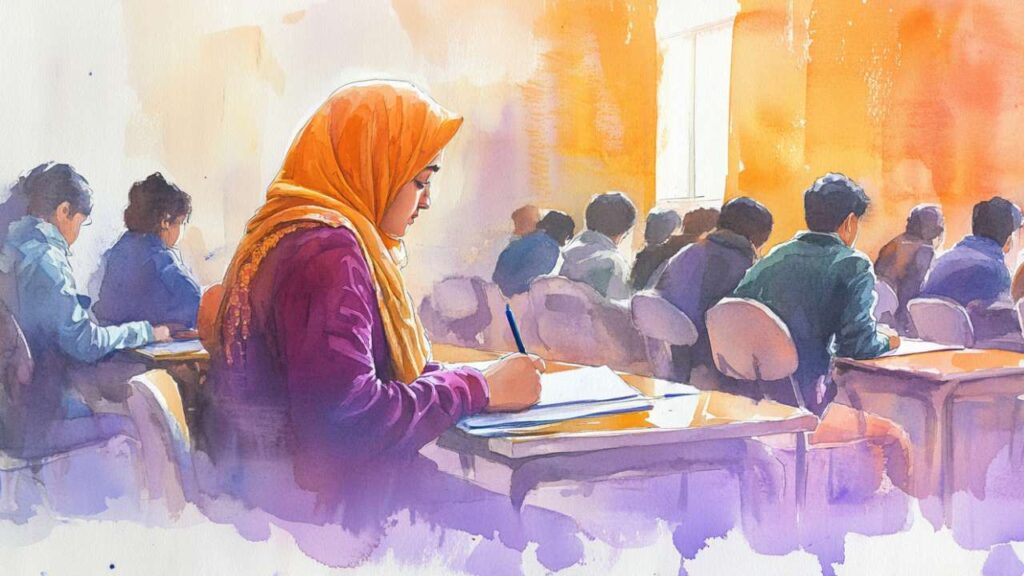1. I am enrolled in a public middle/high school
Wearing signs or clothing through which students conspicuously display a religious affiliation is PROHIBITED (Law of March 15, 2004).
2. I am enrolled in a private middle/high school
The law of March 15, 2004 regarding the prohibition of religious symbols does not apply to private middle and high schools. These institutions are free to accept religious symbols or regulate their wearing, without contravening the Debré law on private education that guarantees access to all students without distinction.
3. I am a student in higher education
NO regulatory text mentions the prohibition of wearing religious symbols in higher education exams, with the exception of BTS and preparatory classes. This exception only concerns those provided in public high schools, where students are subject to the law of March 15, 2004.
To avoid any risk of fraud, students may be subject to identity verification and ear checks before the test. This check is carried out before the test and cannot extend throughout the duration of the exam.
4. I am an external candidate
NO regulatory text mentions the prohibition of wearing religious symbols for all external candidates, regardless of the exam location.
According to the Circular of May 18, 2004 relating to the implementation of Law No. 2004-228 of March 15, 2004: “(…) It does not apply to candidates who come to take the tests of an exam or competition in the premises of a public educational institution and who do not become, by this fact alone, students of public education.”
However, external candidates must comply with the exam organization rules that aim to ensure respect for order and security, to allow verification of candidates’ identity, or to prevent the risk of fraud. Before the exam: you may be asked to momentarily uncover your ears to check if you are not hiding earpieces. This check is legal. Some staff may ask you to remove your headscarf momentarily for the same purpose. It is your right to request that this operation be carried out by a woman in an isolated room.
During the exam: it is illegal for an invigilator to ask you to remove your headscarf. Similarly, it is illegal to ask the candidate to uncover her ears for the entire duration of the test.
What should be done in case of a problem related to wearing a headscarf during the exam?
- Demand to see the regulations stipulating the prohibitions you have been subjected to (rules, circular…)
- For external candidates: present the circular of May 18, 2004 relating to the implementation of Law No. 2004-228 of March 15, 2004, the secularism booklet which provides for this scenario on page 21, or the vademecum which also provides for this scenario on page 39, sheet 6
- Demand that the refusal be notified to you and justified in writing, by letter or email.
- If you are asked to keep your ears uncovered throughout the exam, present the decision of the Defender of Rights MLD-MSP-2016-299 of December 16, 2016 relating to the conditions under which controls aimed at preventing exam fraud were carried out.
- Contact Equitas by email or phone for legal support.




